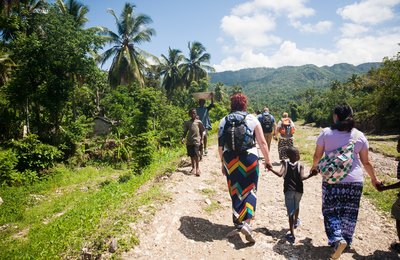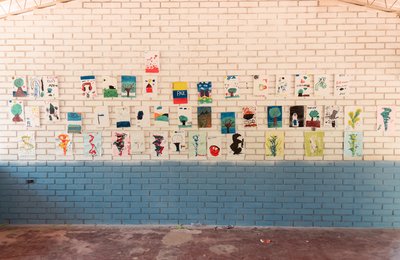Sevalanka started in 1992 and has a large network within the country. Their peace programme is built on three pillars: direct peacebuilding, conflict sensitivity, and research. Sevalanka work with young people, community-based organisations and religious/community leaders, helping to build a network between them to bring about a more productive joint effort for peace in their communities.
With young people, Sevalanka provide leadership training for non-violent social change. The perspective of peace they receive is not limited to peace in a theoretical sense. They receive constant interaction with peers from other ethnicities and religions, and they are given an overall knowledge of peace - including its practical application within the community.
Sewalanka have created the Religious Action Alliance (RAA), an inter-religious coalition of all five major religions in Sri Lanka: Hindu, Buddhist, Christian, Bahai and Muslim. When the inter-religious work began in 2004, these religious leaders had not even considered working together as a possibility. They had many issues and rules and regulations that make working together very much difficult. Sewalanka's first step was to take 30 religious leaders from all these religions to visit the Dalai Lama and ask for his blessings for a peaceful Sri Lanka. These gatherings have continued and now the project is at a stage where the clergy has overcome their fears of other groups and trusts each other and their shared goodwill for the country.

Another notable achievement occurred during the last stages of the war. At that time no one had access to Internally Displaced Persons (IDPs) camps instituted by the government. Even though many local and international organisations asked for permission to visit the camps or support the IDPs, no one was allowed. However, representatives of RAA were able to gain access to IDP camps led by the Buddhist religious leaders of Malwathu and Asgiri Nikayas. They met with the Kurukkals (Hindu/Tamil religious leaders) at the camp and discussed the issues they have to face, and arranged solutions to problems with the camp administration.

Initially Sewalanka focused solely on rehabilitation in the North and East of the country and on development in the rest of Sri Lanka. However, gradually they realised that the progress of their programmes was often hindered by inter-community issues. In 2004 the organisation did an extended evaluation on the work and realised it was not conflict sensitive and established the Peace and Reconciliation Unit - now known as Community Peace Building Team - to mainstream conflict sensitivity through all Sewalanka projects. Peace and reconciliation in a community is now recognised as crucial for its progress, and as such has been put at the core of every other type of social work carried out by the organisation.





